Network screwdrivers: varieties, features of choice and application

The corded screwdriver is a type of power tool designed to work with threaded connections and powered by the mains supply and not from a removable battery. This provides more power to the device and longer periods of production operations.
What it is?
The screwdriver, the device of which is made in accordance with the 220 V power supply circuit, is one of the most demanded modern devices.
If you do not take into account the external design, all wired and autonomous screwdrivers do not essentially differ from each other in appearance: the elongated body contains an electric motor and a gearbox coaxially located on a common shaft with a subsequent chuck in which the working tool (bit / drill / nozzle) is fixed ...
A pistol grip with a Start key is attached to the lower rear part of the body. The power cable from the socket comes out of the handle. Typically, the key or ring of the reverse direction of rotation is located at the level of the gearbox for changing the speed mode.


According to the shape of the body, electric screwdrivers are divided into several subspecies.
- Pistol... This is a budget option with a plastic housing. The chuck is seated directly on the motor shaft, which means that only power determines the quality level of the tool's functioning. The disadvantage is the high temperature of the case, which allows it to be used only for a short time.
- T-shaped body is characterized by a handle offset to the middle of the body... This is believed by many to minimize hand stress, but this is controversial.
- Cordless Drill Driver Is a classic. Basically, such a case was chosen for professional units. Their electric motor spins the bat more smoothly as the rotational power is controlled by the planetary gearbox.
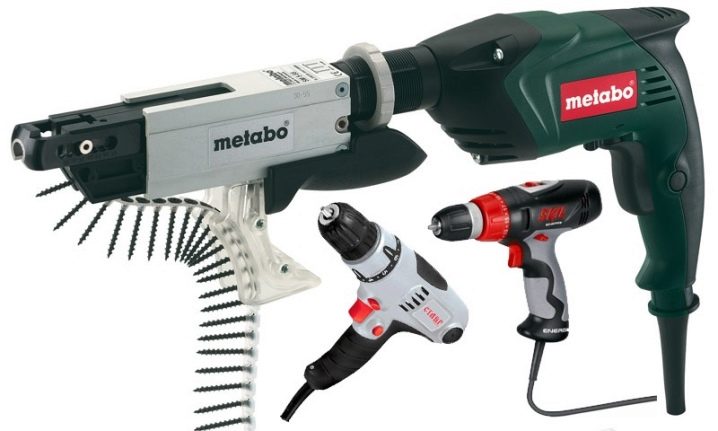
Such devices are used both in the professional sphere and in everyday life, since they are very functional. It is immediately necessary to clarify that the electric screwdriver can perform the functions of both a drill and a wrench, but this will be discussed below.
In the field of application, this versatile tool can also be categorized into types.
- Economic... Another name is household, home. This type is not the most powerful, but reliable. The only caveat is that it is not suitable for long-term continuous operation.
- Professional or construction... It helps to carry out operations that require high power and long periods of operation without interruption. The ergonomics of this type of screwdriver serves for long-term action, provided that the muscles of the hand do not over-wear. These screwdrivers usually last a long time, but need special storage and care.
- Electric (powered by an electrical connector). Its power varies widely, manufacturers offer a very large selection of various models.
It can be used in any area. This is probably the most common option, since it is convenient and does not require constant recharging of batteries.

This classification can be supplemented by compact screwdrivers - small and low-power models for domestic needs, and "shock" ones, which have much higher power.
pros
Electrical equipment powered by the mains is often preferred by professional professionals, as it has a number of advantages.
- The equipment does not have batteries, therefore, there is no danger that the work will stop due to the fact that it is discharged, since the uninterruptible power supply is supplied through the cable. A plus to this can be called the absence of voltage surges, which has a beneficial effect on tool wear.
- Weight saving (no battery).
- Due to the power supply from the mains, it is possible to use more "resourceful" models and save work time.
- The weather conditions will not affect the performance of work so much (at low temperatures, the battery loses its charge much faster).


Minuses
Of course, mains-powered electric screwdrivers have some criticism of their performance.
- The biggest drawback compared to more mobile battery devices is the limited length of the power cable. It always turns out to be insufficient when performing work.
- Access to the electrical network is required in the immediate vicinity of the work site.


Views
Electric screwdrivers are usually divided into several types.
- Local Power Screwdrivers... As a rule, these are the simplest and most reliable devices. Power is supplied by simply plugging a wire into an outlet.
- Combined devices... These are more sophisticated tools that can be powered in parallel from both an outlet and a rechargeable battery. As a rule, their cost is higher, which is compensated by the convenience of their use.
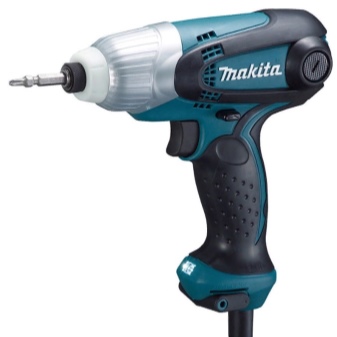
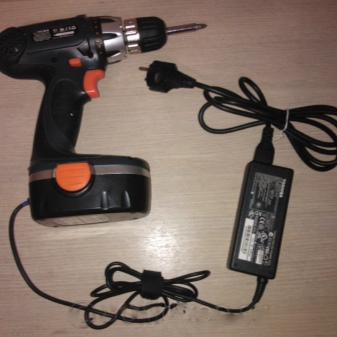
- Screwdrivers with motor brake:
- the electrical principle of the brake, as a rule, is based on the closure of the + and - of the motor, if you suddenly release the "Start" button;
- if the brake is mechanical, then its principle of operation is similar to that implemented in a regular bicycle.


- Drywall screwdrivers... They differ from ordinary network ones by the presence of a screw-in depth coupling, which is necessary when using hardware of considerable length.
- Impact screwdrivers... When working with stuck hardware, an impulse is used to enhance the impact, that is, the cartridge begins to rotate with jerks of greater power, intermittently.


These tools are also distinguished by the types of cartridges:
- tools with toothed (key) chucks, in which the nozzles are fixed with a special key, which takes a certain time, but such a fastening is considered highly reliable;
- screwdrivers equipped with keyless chucks are leaders in easy and quick change of attachments, but when working with materials of increased hardness, the reliability of such a fastening leaves much to be desired.
Chucks adapted for use with bits are only intended for use with a screwdriver, while keyless and key chucks can be used with drills, power drills, etc.
The power of the used attachment also depends on the diameter of the chuck. Non-professional power tools are usually equipped with cartridges in the range of 0–20 mm.


Comparison with other tools
Network screwdrivers, combined with the functions of a drill, are called a screwdriver-drill. These are structurally more complex models.
As a rule, they have a dual speed control range:
- in the range of 0-400 rpm, operations are performed with fasteners;
- and the higher speed range of 400-1300 rpm is used for drilling.
Also, the considered electric screwdrivers may differ in the types of motors: with or without brushes.
The brushless tool has a higher cost, it runs smoothly, makes less noise, it does not need special maintenance, since the brushes need to be replaced relatively often.


How does it work?
Electricity is supplied via a cable from the network to the electric motor. The latter transforms electricity into mechanical energy, which ensures the rotation of the common shaft of the gearbox, through which the working tool (bit or drill) rotates.
How to choose the right one?
In order to understand the purpose of using this tool, you must follow certain selection criteria.
- Torque / torque... This term is understood as a value that characterizes the force at the rotational speed of the screwdriver spindle. If 17-18 Nm is enough for household devices, then for a professional model it will need to be brought to at least 150 Nm.
The higher this indicator, the more power will be required from the electric motor. It also determines the recommended power for working with the material.
Example: at a torque of a low power screwdriver of 25–30 Nm, a 60 mm self-tapping screw is relatively easy to screw into a dry wooden block.
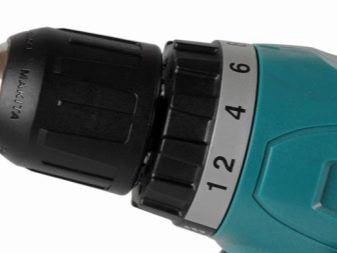

- Brand and price... Do not think that all products under a well-known label are of the highest quality and a very high price, and relatively unknown manufacturing companies do not deserve attention due to the relatively low price of the product.
You just need to remember one thing - practice shows that a high-quality device should not be too cheap.
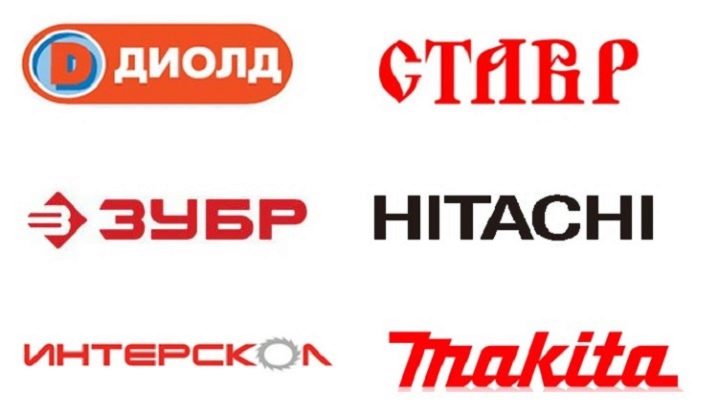
- Dimensions and ergonomics... If the choice of a screwdriver is made for home use, this step can be skipped. It is relevant only if the tool is planned to be used daily and for a long time.
The best choice would be to choose a medium-sized tool to cope with a serious volume of work, at the same time not causing discomfort to the worker during operation.


- Power... Determined by the performance and weight of the screwdriver, and vice versa. For housework / apartment work, on average, 500-600 watts will be enough.
Electric screwdrivers with motors up to 900 W are already included in the professional category.
Example: the power of an ordinary electric household screwdriver of 280-350 W is sufficient for screwing self-tapping screws into thin metal, not to mention plasterboard panels, but a thicker metal plate will require the use of a power tool of greater power (from 700 W).


- Reverse rotation device (reverse)... A screwdriver with this option has the advantage of removing the fasteners by unscrewing them in the opposite direction, which facilitates the dismantling process.
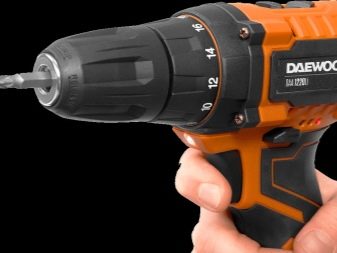

- Possibility of setting the number of revolutions (shaft rotation speed, with motor brake, etc.). This function of the electric screwdriver is not presented in every model, but it represents a definite advantage over other models. The fact is that with an average number of revolutions of 300-500 per minute in operating mode, it often needs to be reduced in order not to destroy the fasteners (not to break off the head of the self-tapping screw / screw).
In this case, the deceleration function is used, which is carried out either by pressing the button with greater force, or by a special toggle switch, or by a regulator of a different shape.

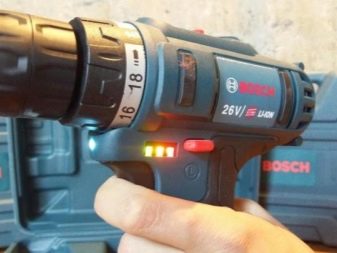
- Fasteners... In the instructions for use of the device, the manufacturer indicates the largest size of fasteners for working with it. The most common size is 5 mm. There are screwdrivers that can handle fasteners up to 12 millimeters, but they, rather, belong to the professional segment.


If the screwdriver performs the functions of a drill, it is necessary to pay attention to an important parameter - this is the maximum drill diameter.
Many tools are equipped with auxiliary functions: blocking of the "Start" key for long-term operations, LED backlighting, etc.

Famous manufacturers and reviews
It is no secret that manufacturers of impact drivers hold numerous polls, which result in ratings, which, in turn, increase the level of sales of quality and inexpensive tools.Based on the results of their analysis, this review was compiled.
Wire models
The survey leaders were mainly Russian companies in the budget, medium and relatively inexpensive price range. From foreign manufacturers, buyers selected Japanese models of screwdrivers.
The brands "Diold", "Stavr", "Zubr", "Interskol" are Russian trade marks, where each development is the fruit of the activities of Russian specialists, which is accompanied by certificates of conformity to GOST of the Russian Federation.


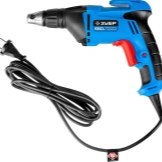

The ratings were based on:
- workmanship;
- ease of use;
- decibel level;
- hole diameter;
- electric motor power;
- additional options (mixer, dust collector, etc.);
- weight and dimensions;
- the ability to change the speed of rotation of the popularity of the brand;
- the bid price.
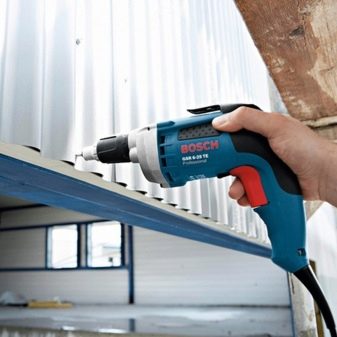

"Diold" ESh-0.26N
This is a fairly low-power screwdriver, consuming up to 260 watts. It is usually used when working at home with wood and metal parts. It has only one speed, for this reason the work is delayed. Can punch holes up to 3 cm in diameter in soft materials.
Pros:
- long power cable length;
- low cost;
- light weight and dimensions;
- ability to work with steel and wood materials.
Minuses:
- fragility of the power cable and power connector;
- fast heating and long cooling time;
- short period of work without interruptions.


"Stavr" DShS-10 / 400-2S
It is the best modification of the cordless drill-driver suitable for domestic use. Not suitable for professional use (low power up to 400 W). In comparison with the previous model, the shaft rotation speed is higher - up to 1000 rpm. / min. High-quality and convenient operation is ensured by smooth speed control, which prevents hardware breakage.
"Stavr" is a universal tool: it can drill wood, metal and plastic. The hole diameter is 9–27 mm. The 3m network cable is quite long, so there is no need to carry it around.
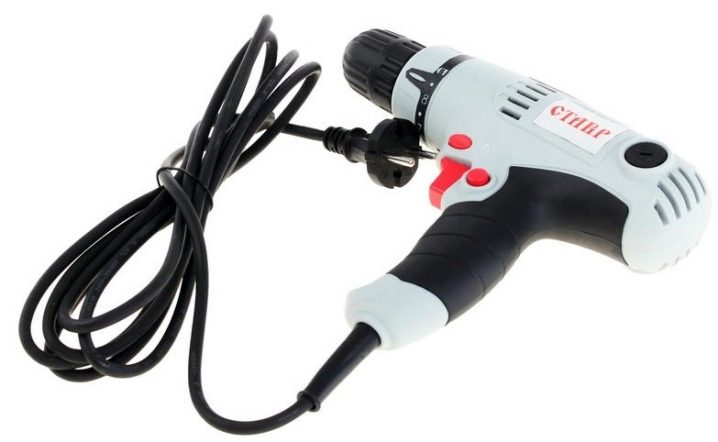
Pros:
- the presence of reverse rotation;
- electronic speed control;
- low price;
- weight - 1300 gr.;
- good ergonomics;
- long network cable length.
Minuses:
- the surface cannot be washed;
- light shade of the body;
- the place of contact of the network cable with the case is subject to deformation;
- unpleasant smell of plastic;
- the electric motor is poorly blown;
- lack of LED lighting, despite the fact that it is indicated in the package bundle.
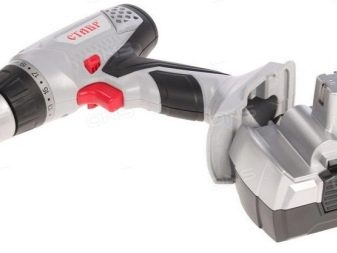
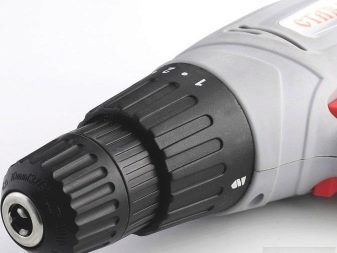
"Zubr" ZSSH-300-2
Model of a drill-screwdriver with a power of up to 300 W, with a low weight (up to 1600 g.), With small dimensions.
"Zubr" is equipped with a limiting clutch, multi-stage adjustable convenient keyless chuck and adjustable speed. Long power cable (up to 5 m). The tool is two-speed, switching is carried out with a special key. The maximum amount is 400 vol. / min. You should not set daunting tasks before him.
Pros:
- the presence of a second speed;
- considerable length of the power cord;
- availability of speed switching;
- the chuck seldom gets stuck.
Minuses:
- too light shade;
- there is a crackling sound in the process (according to users' information).
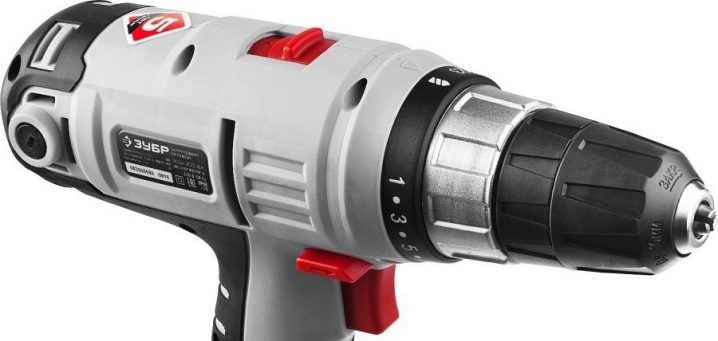
Below are the popular cordless drills of the middle price segment, which are distinguished by great freedom of setting the speed and ergonomics.
"Interskol" DSh-10 / 320E2
Two-speed screwdriver with 350 W motor power. Possessing low indicators, he manages to punch wood and metal of considerable thickness with a self-tapping screw, and the hole diameter during drilling can be up to 20 mm in wood and up to 10 mm in metal.
Pros:
- service in large cities responds in the shortest possible time;
- ergonomics at a high level;
- the handle has anti-slip pads;
- you can replace the motor brushes without opening the case;
- sufficient flexibility of the power cord.
Minuses:
- the chuck in many cases has a backlash of the guiding axis;
- weak clamping force of the chuck;
- insufficient length of the network cable;
- case is missing.

Hitachi D10VC2
As an impact drill-driver, the equipment lends itself to wooden blocks, metal sheets, and concrete walls. It has only one speed limit, but it's worth it - almost two and a half thousand rpm.
The convenience of using this model of a screwdriver is due to the speed limiter, and even the reverse, although there is no limiting clutch in this device, and the hall of the hardware head is quite real. The clutch is easy to tune because the rotation is adjustable in 24 different ways. Keyless chuck allows quick tool changes.

Pros:
- high build quality;
- good ergonomics;
- low noise;
- light weight.
Minuses:
- small diameter chuck;
- single speed mode;
- there is no clutch;
- excessive rigidity of the network cable.

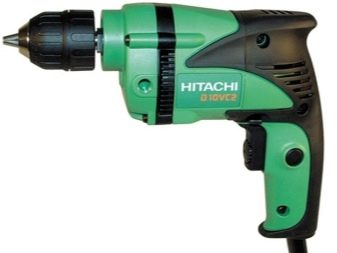
Any cordless screwdriver in everyday life is always more profitable than its more mobile and small counterpart on rechargeable batteries because of its relative power and compactness. But it will be more convenient to operate it if you take into account the length of the power cord and its additional functions in advance.
Tips for choosing a network screwdriver - in the next video.













The comment was sent successfully.